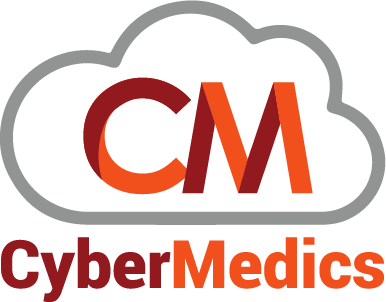
Logic Apps vs Power Automate: Which is Better For You?
Ever felt like you’re juggling too many tasks, only to drop the ball on automation? You’re not alone. The dilemma often boils down to choosing the right tool. Is it Logic Apps or Power Automate? Good news—you’re about to find out.
In this article, we will explore:
A head-to-head comparison between Logic Apps and Power Automate
Feature deep dive: What sets each tool apart
Pros and cons: The good, the bad, and the ugly for both
Real-world applications: Where each tool shines and where it doesn’t
P.S., If you’re looking to supercharge your business processes, CyberMedics has got your back. We’ll help you decide which one of Microsoft’s power tools is best for you and build a custom solution that reduces labor and drives more profit for your business. Schedule a FREE consultation today.
The Automation Showdown: Logic Apps vs Power Automate
So, you’re ready to automate. Fantastic! But hold your horses. Before you dive in, you need to pick the right tool. It’s like choosing between a Swiss Army knife and a specialized toolset. Both have their merits, but which one is the perfect fit for you?
Logic Apps: The Custom Coder’s Dream
Microsoft’s Logic Apps is all about customization. It’s the tool you reach for when you’ve got specific, more complex workflows in mind.
Flexibility: Tailor your automated workflows down to the finest detail.
Connectors: Over 200 pre-built connectors to popular services.
Enterprise-Level: Built for scalability, it’s a hit among larger organizations.
If you’re dealing with complex, multi-step workflows that require deep customization, Logic Apps is your go-to.
Power Automate: The User-Friendly Powerhouse
On the flip side, we have Power Automate flow. Think of it as Logic Apps’ more user-friendly cousin.
Ease of Use: Intuitive UI that even beginners can navigate.
Quick Automation: Ideal for automating simple, repetitive tasks.
Cost-Effective: Lower entry cost makes it accessible for smaller businesses.
Power Automate is best for seamless Office 365 integrations and everyday automations without the coding complexity.
The Key Differences
Complexity: Logic Apps for intricate workflows, Power Automate for simpler ones.
User Base: Logic Apps appeals to devs, Power Automate to the less tech-savvy.
Cost: Logic Apps can get pricey, while Power Automate offers a more budget-friendly approach.
By the way, if all this talk of automation has you itching to streamline your own workflows, CyberMedics is here to help. We offer tailored software solutions that align with your unique needs, from business process automation to Microsoft platform consulting. No more square pegs in round holes. Just solutions that work.
Feature Deep Dive: What Sets Each Tool Apart
You’re here because you want to automate like a pro, but you’re torn between Power Automate and Logic Apps. It’s like choosing between a Swiss Army knife and a specialized toolkit. Each has its own set of bells and whistles, but which one will truly serve your unique needs? Let’s dive into the nitty-gritty features of each to help you make an informed decision.
Microsoft Power Automate
Power Automate is your go-to tool for automating repetitive tasks across multiple applications and services. It offers a vast array of pre-built templates and connectors, making it easier than ever to integrate different services.
You can automate workflows between your favorite apps like SharePoint, Outlook, and Dynamics 365. It’s not just about business; Power Automate can also handle personal automate tasks like organizing your emails or automating social media posts.
Key Features
Robotic Process Automation (RPA): Automate legacy systems with ease.
AI Builder: Incorporate AI into your workflows without any coding.
Templates: Jumpstart your automation with hundreds of pre-built templates.
Connectors: Integrate with over 400 services, both in the cloud and on-premises.
Logic Apps
Logic Apps is a more developer-focused tool that allows you to automate workflows and integrate apps, data, services, and systems across cloud, on-premises, and hybrid environments. It offers low-code/no-code solutions, making it accessible for both developers and business users.
Key Features
Visual Designer: Create workflows with a drag-and-drop interface.
Managed Connectors: Pre-built proxies for REST APIs to connect to specific apps, data, or services.
Integration Account: Store and manage B2B artifacts for use in your workflows.
Enterprise Integration: Supports industry-standard message protocols like EDIFACT, AS2, X12, and RosettaNet.
Why Choose Logic Apps?
Scalability: Logic Apps inside Visual Studio Code is fully managed by Microsoft Azure, freeing you from worrying about hosting, scaling, and maintenance.
Flexibility: Choose from hundreds of connectors in a growing Azure ecosystem, including Azure services like Blob Storage and Service Bus.
Security: Run your workflows in dedicated instances, reducing the “noisy neighbors” effect and increasing limits on run duration, storage retention, and more.
The Showdown: Power Automate vs. Logic Apps
So, which tool should you choose? If you’re a business user looking for quick, template-driven solutions, Power Automate is your best bet. On the other hand, if you’re a developer or an enterprise user needing more control, scalability, and customization, Azure Logic App is the way to go.
Pros and Cons: The Good, the Bad, and the Ugly for Both
So, you’ve got the lowdown on the features. But what about the pros and cons? No tool is a one-size-fits-all solution, and understanding the strengths and weaknesses of each can be a game-changer. Let’s break it down.
Power Automate: The Good, the Bad, and the Ugly
The Good
User-Friendly: No coding skills? No problem. Power Automate’s intuitive UI has you covered.
Cost-Effective: Ideal for small businesses or individual users on a budget.
Quick Setup: With pre-built templates, you can get up and running in no time.
The Bad
Limited Customization: While user-friendly, it lacks the deep customization options that Logic Apps offers.
Less Scalable: Not the best fit for large, complex enterprise workflows.
The Ugly
Error Handling: Less robust than Logic Apps, making troubleshooting a bit of a headache.
Logic Apps: The Good, the Bad, and the Ugly
The Good
Highly Customizable: Tailor your workflows to your heart’s content.
Scalable: Built for the enterprise, it grows with your needs.
Robust Error Handling: Advanced debugging and monitoring tools make troubleshooting a breeze.
The Bad
Learning Curve: It’s not as beginner-friendly as Power Automate.
Cost: The customization and scalability come with a higher price tag.
The Ugly
Overkill for Simple Tasks: If you’re just looking to automate basic tasks, Logic Apps might be more than you need.
By the way, if you’re still on the fence, CyberMedics can help you navigate these waters. We offer expert guidance on Microsoft platforms and can tailor software solutions to fit your unique automation needs. No more guesswork—just results.
Real-World Applications: Where Each Tool Shines and Where It Doesn’t
You’ve got the features, the pros, and the cons. But how do these tools perform in the wild? Let’s look at some real-world applications to see where each tool excels and where it might fall short.
Power Automate in Action
Where It Shines
HR Onboarding: Automate the tedious paperwork and approvals, making the onboarding process a breeze.
Social Media Management: Schedule posts, track mentions, and generate reports—all automated.
Invoice Processing: From receipt to approval, automate the entire invoice workflow.
Where It Doesn’t
Complex Data Transformation: Power Automate struggles with intricate data manipulation tasks.
Highly Customized Workflows: For workflows that require deep customization, it’s not the best fit.
Azure Logic Apps in Action
Where It Shines
Supply Chain Management: Integrate with multiple systems to automate order processing, inventory tracking, and more.
Data Synchronization: Sync data across disparate systems in real-time.
IoT Workflows: Handle large volumes of data from IoT devices efficiently.
Where It Doesn’t
Simple Task Automation: It’s overkill for basic tasks like email notifications or simple data transfers.
Budget Constraints: The costs can add up, making it less suitable for small businesses.
Case Studies: Real Stories, Real Results
Case studies offer a glimpse into the transformative power of the right tools. Let’s delve into some compelling stories that showcase how Power Automate and Azure Logic Apps have revolutionized businesses across industries.
Logic Apps: Versatility in Action
C-BIA Consulting: Automated the flow of student data between Slate and Canvas, streamlining educational automate processes.
City Mattress: Partnered with TwoConnect to develop Azure Logic Apps that connected their Azure-hosted Storis SQL Database with Shopify.
Encora: Designed an Azure cloud-based scheduler for a utility operations client, integrating two enterprise systems using Logic Apps.
Evo Group: Enabled staff to share information easily and improve collaboration across the board.
Black Friday Rescue: Serverless360 used Logic Apps to save a company when their legacy middleware crashed right before Black Friday.
Key Takeaway: Logic Apps excel in automating complex business processes and integrating diverse services, from education to retail.
Power Automate: Efficiency Unleashed
Komatsu Australia: Built an RPA solution that saved them 300 hours a year in invoicing for just one supplier.
Aioi Nissay Dowa Insurance: Optimized citizen developer training & certification processes using Power Automate desktop flows.
Hanover Insurance: Automated manual tasks in the underwriting process, driving rapid automation with Power Automate and Power Apps.
Hearing Australia: Sales staff use Power Automate flows to automate business processes, integrated with Dynamics 365 and Dataverse.
Oil & Gas Industry: Automated data management, loan application capturing, and business rule applications.
Key Takeaway: Power Automate shines in automating repetitive tasks and streamlining workflows, from insurance to manufacturing.
Pricing: What’s the Damage?
The million-dollar question—literally. How much is online automation tool going to set you back? Let’s talk numbers, but remember, the best tool for you isn’t necessarily the cheapest or the most expensive. It’s the one that offers the best value for your specific needs.
Power Automate: Budget-Friendly Automation
Free Plan: Yes, you read that right. Power Automate offers a free plan with limited runs per month.
Paid Plans: Starting at $15 per user/month, you get unlimited flows. The pricing scales based on the number of runs and premium features you need.
Key Takeaway: Power Automate is the go-to for budget-conscious businesses or individuals who need basic automation.
Azure Logic Apps: Pay-As-You-Go Flexibility
No Upfront Costs: Azure Logic Apps operates on a pay-as-you-go model. You pay for what you use.
Pricing Tiers: Costs depend on the number of executed actions, connectors, and integration accounts. It can range from a few cents to several dollars per action.
Key Takeaway: Logic Apps offers more flexibility and scalability but can become costly for complex, high-volume workflows.
The Bottom Line
Simple Workflows: If you’re automating straightforward tasks, Power Automate offers a cost-effective solution.
Complex Integrations: For intricate, enterprise-level workflows, Logic Apps may be worth the investment.
Make Automation a Walk in the Park with CyberMedics
You’ve made it to the end, and you’re not just walking away with information—you’re walking away with a game plan to either decide power automate or logic app for your business needs. You’re now equipped to compare Power Automate and Azure Logic Apps like a pro.
Key Takeaways
Power Automate is user-friendly and budget-conscious, ideal for simple, repetitive tasks that are tied with the Office 365 Suite.
Azure Logic Apps offers deep customization and scalability, perfect for complex, enterprise-level workflows.
Both tools have their pros and cons, so your unique needs will dictate the best choice.
Hey, if all this talk about automation has you ready to take action but you’re still on the fence, CyberMedics has got your back. We specialize in custom software solutions and Microsoft platform consulting. Let’s make your automation journey a smooth ride.
